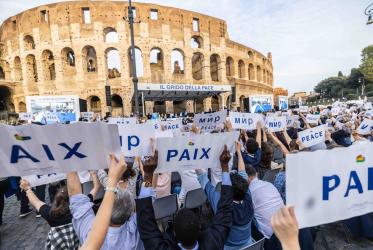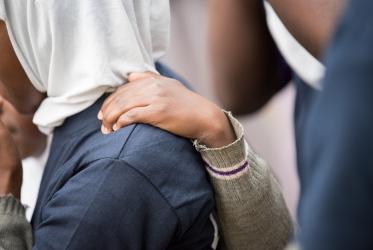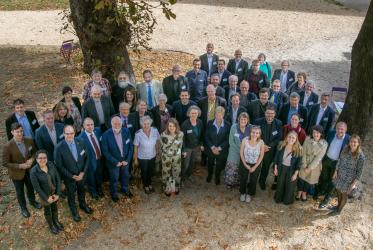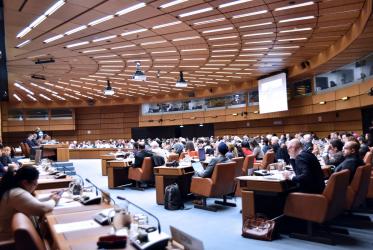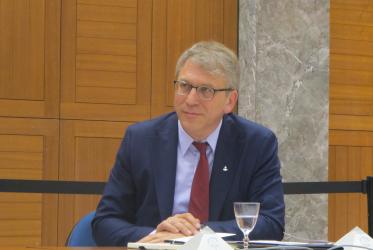Displaying 1 - 20 of 25
WCC well-represented in Religions for Peace leadership
07 October 2019
Paving the way for ecumenical studies, learning English in Bossey
24 September 2018
Turning plans into action to prevent incitement to violence
14 February 2018
What does ‘prudence’ mean for dialogue and peace-building?
16 November 2016
Religious leaders of many faiths talk peace in Assisi
21 September 2016
Religion: Way of war or path to peace?
30 June 2016
WCC/UN conference calls for coordinated action on refugee crisis
20 January 2016
WCC Executive Committee works toward a future of peace and justice
19 November 2015
WCC strongly condemned terror attacks
14 November 2015
WCC more united in the pilgrimage of justice and peace
13 November 2015
WCC urges responsibility for and support to the refugees in Europe
04 September 2015
New departure in Taizé towards an ecumenism of solidarity
20 August 2015
